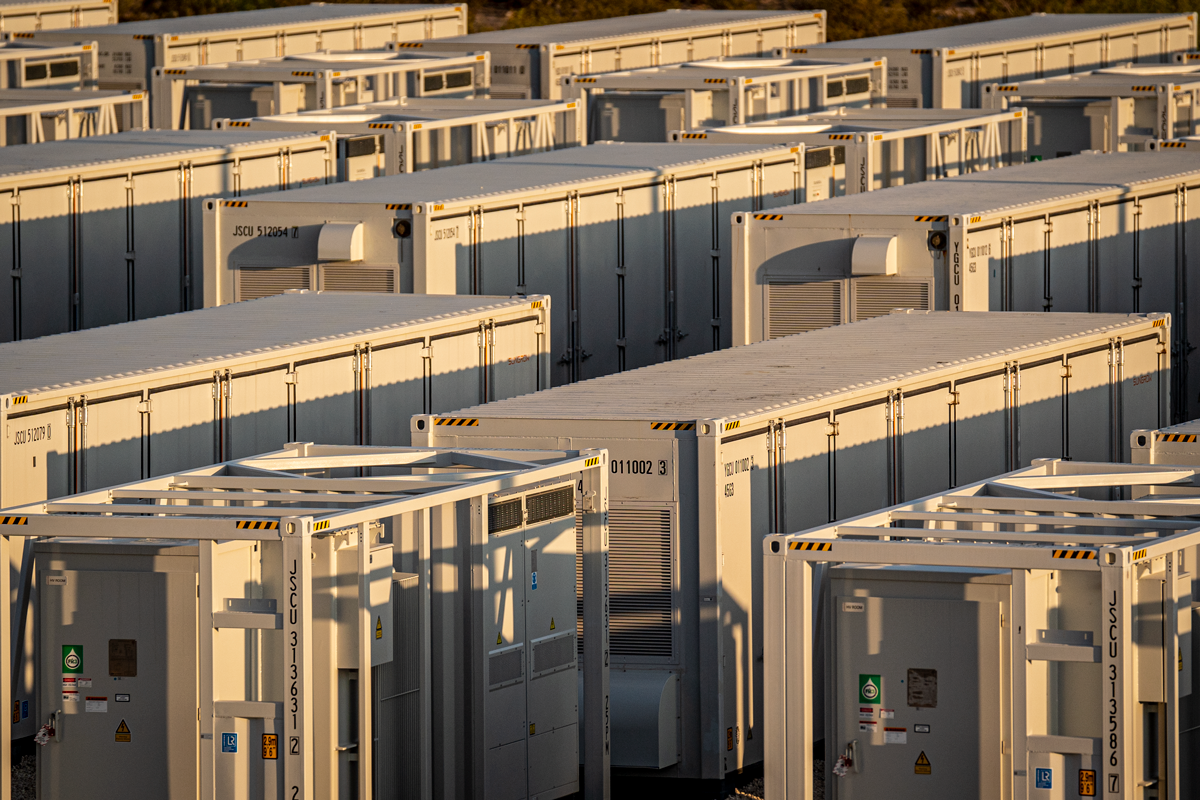Energy
Why the Greater Houston Region is a Prime Location for Battery Energy Storage Projects
3/3/25
The emergence of Battery and Energy Storage Systems (BESS) has revolutionized the energy landscape, enabling greater flexibility and efficiency in power generation and consumption. As renewable energy sources become more prevalent, BESS provides a complementary yet critical solution for storing excess energy during peak production and releasing it when demand is high or generation is low. These systems enhance grid stability through a diversification of power sources.
As these sources continue to grow into prominence, we have seen their positive impact in the region. With a growing push for resiliency, these systems will strengthen Houston’s quality of life as well as its local business environment.
While BESS can provide the Houston region benefits, the Houston region also offers a lot to this growing energy solution. Given the wealth of energy leadership, Texas isn’t just the nation’s energy powerhouse - it’s the perfect ecosystem for BESS innovation. Here’s why:
Energy Market LeadershipTexas is home to the Electric Reliability Council of Texas (ERCOT), one of the most dynamic and competitive energy markets in the world. ERCOT’s grid provides a fertile ground for the integration of BESS, enabling grid resilience and reducing costs.
Renewable Energy GrowthAs per the Energy Information Administration (EIA) - the Lone Star state has 42,000 megawatts (MW) of wind power, 22,000 MW of solar farms and 6,500 MW of utility-scale battery capacity in place as of the end of 2024 – thus dominating the development of renewable energy generation and battery capacity within the United States.
Regulatory and Economic IncentivesPrograms like the Texas Energy Fund (TEF), coupled with local initiatives, create an enabling environment for developers.
Strategic Geography and ExpertiseThe Greater Houston Region offers unparalleled infrastructure, skilled labor, and proximity to industrial hubs, making it a natural choice for BESS investments.
Houston Region: The Emerging Epicenter of BESS
As the Energy Capital of the World, Houston is uniquely positioned to lead this transformative sector of BESS, leveraging high growth, grid demand, and strategic projects across the Greater Houston region.
From League City’s 150 MW project to Texas City’s groundbreaking initiatives and Galveston County’s Gridstor project (to name a few), Houston is laying the foundation for a resilient energy future.
Key Projects Powering BESS Momentum
1. League City: Fostering community engagement The recent approval of a 150 MW Peregrine Energy facility in League City exemplifies how the city is setting the standard for sustainable energy development. Working closely with the community and stakeholders provided opportunities to address concerns of the residents and pave the way for transformative investments in the greater Houston region.
The city’s forward-thinking ordinance re energy storage includes:
Plume modeling and 24/7 monitoring to ensure safety.
Emergency response plans and comprehensive decommissioning requirements.
Transparent engagement with residents to address concerns and build trust.
These efforts transformed the initial community pushback into support, highlighting how thoughtful regulation and outreach can lead to success. Additionally, a 10 MW BESS facility, regulated by the city, further demonstrates how the Greater Houston region is scaling energy storage to meet growing demands.
2. Texas City: Scaling Ambition
Texas City is attracting large-scale energy storage projects which will play a crucial role in grid reliability and energy transition. Historically, strict zoning regulations posed challenges for BESS projects, but the city is now transitioning to a Site Plan approval process, making it easier for BESS projects to set up operations while maintaining safety standards.
Additionally, Texas City has been collaborating with Bluestem Energy Solutions to refine its approach to BESS implementation, ensuring smoother project approvals and better integration with local energy infrastructure.
The city is also prioritizing community engagement and conversations with industry experts to train its staff while working closely with fire safety professionals to address potential hazards, reinforcing its commitment to both innovation and safety in the energy transition.
3. Galveston County: Expanding Regional ImpactGalveston County continues to attract strategic BESS investments, including the Gridstor Battery Energy Storage Project, which recently started construction. This facility is expected to enhance grid reliability and support renewable energy integration across the Greater Houston region.
Additionally, the Shepard Energy Storage project is advancing efforts to bolster energy stability in Galveston County, emphasizing the importance of energy storage in maintaining grid resilience.
These projects illustrate how high growth and intense grid demand drive companies to locate here, even without significant tax abatements.
4. City of Houston: The first large-scale BESS
The City of Houston is now home to the first battery storage project of its scale, with the Jupiter Power 200MW/400MWh Callisto I Energy Center. Operational as of summer 2024, this project provides potential for stability and resiliency with any extreme weather affecting the area.
How the Greater Houston Partnership is Driving Growth
The Partnership is committed to ensuring the region remains a global leader in energy storage.
Here’s how the Partnership is advancing this vision:
Engaging communities and stakeholdersAs the world transitions to energy-abundant, low-carbon energy solutions, the Partnership’s Houston Energy Transition Initiative (HETI) collaborated with the Houston Advanced Research Center (HARC), Sallie Greenberg Consulting (SGC) and released a Climate Equity Report, which includes the Framework for an Equitable Energy Transition and the Community Engagement Toolkit. This was developed to help foster positive, two-way communication and engagement between Houston-area energy companies and the communities they impact.
Advocating for supportive policies and ensuring strategic partnershipsStrengthening Houston's thriving business environment is critical to our members' mission of making Houston the best place to live, work and build a business.The Partnership collaborates with stakeholders and advocates for strong public policy at all levels of government that fosters long-term growth and upward economic mobility for the region.
Preparing a workforce that is equitable and inclusiveThrough initiatives like UpSkill Houston and One Houston Together, the Partnership ensures the region’s workforce is ready to meet the demands of emerging technologies like BESS.
The Path Forward
Houston’s leadership in BESS is transforming the energy landscape, and the region is setting a national standard for innovation, community engagement, and economic growth. HETI is supporting these efforts to ensure Houston remains at the forefront of the energy transition.
As BESS becomes an essential tool for grid resilience and emission reductions, Houston is poised to power the future.
To learn more about the all-inclusive energy ecosystem in Houston, visit our energy focus page.
Read More

 The Houston Report
The Houston Report



















